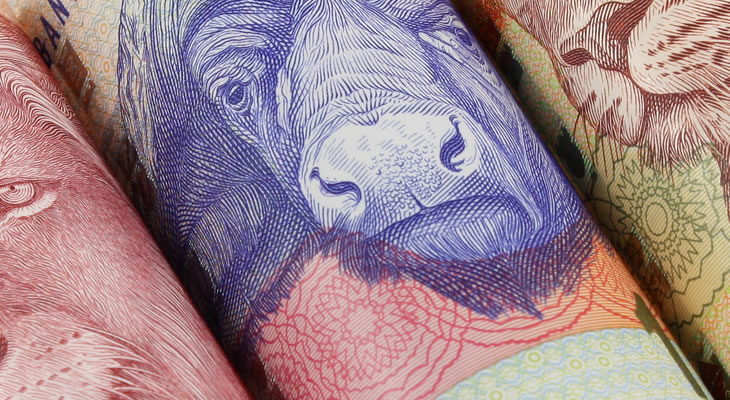On Thursday the Pound Sterling to South African Rand (GBP/ZAR) exchange rate softened as riskier emerging market currencies received support from dovish comments made by the US Federal Reserve.
The Pound Sterling to South African Rand (GBP/ZAR) exchange rate rallied as the Rand followed other emerging market currencies lower.
A sell-off of riskier assets picked up speed as the session progressed due to heightened concerns over tumbling oil prices and a slowing global economy.
Earlier in the session the Pound Sterling to South African Rand (GBP/ZAR) exchange rate softened on Tuesday as weaker than forecast UK inflation data weighed. The softness is unlikely to last however as a sell-off of emerging assets looks set to continue.
Earlier in the session, the Rand had been supported by a brief rally in emerging markets as the Russian central bank made an aggressive interest rate hike. As the session progressed, however the sell-off of emerging market assets continued apace as falling oil prices and a surprise contraction in China’s factory sector spooked investors.
Monday saw the Rand fall sharply against the US Dollar and other major peers after it was pressured by a gloomy domestic economic outlook and joined the sell-off being seen in other emerging markets as the relentless fall in oil prices continues.
As the session progressed the South African currency managed to firm after credit agency Fitch left its BBB rating and negative outlook in place.
The decision surprised economists who had been expecting a downgrade.
The relief at avoiding another downgrade was short-lived as traders chose to focus on Fitch’s gloomy tone.
The ratings agency highlighted concerns about South Africa’s gaping current account and budget deficits.
Pound Sterling (GBP) Exchange Rate Falls on Inflation and Bank of England Comments
As Tuesday’s session progressed, the Pound was weakened by data, which showed that UK inflation tumbled to its lowest level in 12-years.
According to the Office for National Statistics (ONS) the UK’s Consumer Price Index fell to a rate of 1% in November from 1.3% in October. Inflation as measured by the Retail Prices Index fell to a five-year low of 2%, down from 2.3%.
If inflation falls below the 1% level Bank of England Governor Mark Carney will have to write a letter of explanation to Chancellor George Osborne.
The weak figure weakened the Pound as it reduces the likelihood of the BoE raising interest rates from the historic low level of 0.5%.
Also weighing on the Pound were comments made by the BoE in its Financial Stability report. Governor Carney said that the global economic outlook has weakened since the summer and the threat to the UK’s financial stability has increased.
Despite the weak UK data, the Pound is forecast to strengthen against the Rand over the coming sessions as weak commodity prices and concerns over the wider global economy cause investors to abandon riskier emerging markets and turn to the safe havens of the US Dollar and Japanese Yen.

